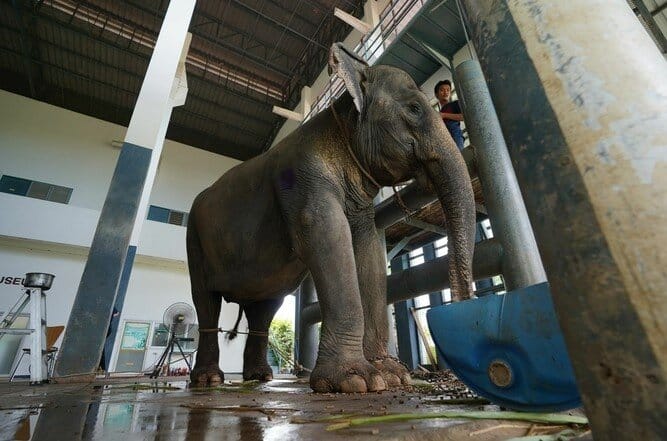Preserving a National Treasure: The Role of Elephant Hospitals in Thailand
Introduction
Thailand is known for its rich cultural heritage and natural beauty, but it is also home to another national treasure – elephants. Considered sacred in Thai culture, elephants have played an essential role throughout the country’s history. Unfortunately, with the increasing urbanization and the demand for tourist attractions, elephants in Thailand have faced numerous challenges, including health issues. To preserve these magnificent creatures, elephant hospitals have emerged as vital institutions. These hospitals provide essential medical care, rehabilitation, and conservation efforts for Thailand’s elephants. This article will explore the crucial role played by elephant hospitals in preserving this national treasure.
The Plight of Elephants in Thailand
Thai culture has long revered elephants, symbolizing wisdom, power, and prosperity. However, Thailand’s cities’ rapid modernization and expansion have encroached upon elephant habitats, leading to conflicts between humans and these majestic animals. Additionally, the demand for elephant performances, rides, and other forms of entertainment has put immense pressure on these creatures, often resulting in abuse and neglect. As a result, many elephants suffer from physical and psychological trauma and urgently need medical care.

The Emergence of Elephant Hospitals
Recognizing the importance of preserving elephants in Thailand, several organizations and individuals have established elephant hospitals nationwide. These hospitals provide various services, including medical treatment, rehabilitation, and conservation efforts. The first elephant hospital was founded in 1993 in Lampang province by the Friends of the Asian Elephant Foundation. Since then, several other hospitals have been established in different parts of Thailand, including the Thai Elephant Conservation Center in Lampang and the Elephant Nature Park in Chiang Mai.
Medical Care for Injured and Sick Elephants
One of the primary functions of elephant hospitals is to provide medical care to injured and sick elephants. These hospitals are equipped with veterinary facilities and staffed with experienced veterinarians specializing in elephant care. They treat a wide range of ailments, including injuries sustained from accidents, diseases, and infections. In some cases, elephants are brought to the hospitals with serious injuries caused by landmines or poaching. The hospitals also conduct regular health check-ups and administer vaccinations to prevent diseases.
Rehabilitation and Physical Therapy
Elephants rescued from abusive situations or have suffered physical injuries often require rehabilitation and physical therapy to regain strength and mobility. Elephant hospitals play a crucial role in offering such rehabilitation services. They provide specialized facilities and programs, including hydrotherapy, massage, and exercises to help elephants regain their physical abilities. This improves their overall well-being and prepares them for potential reintegration into the wild or a safer environment.
Conservation Efforts and Education
In addition to providing medical care and rehabilitation, elephant hospitals contribute significantly to conservation efforts and education. These hospitals actively engage in research and conservation projects to better understand elephants’ needs and challenges in Thailand. They work closely with local communities, government agencies, and other organizations to develop strategies for protecting and conserving elephant populations. Furthermore, they organize educational programs and initiatives to raise awareness about elephant conservation among local communities and tourists.


Challenges and Future Outlook
While elephant hospitals in Thailand have made significant contributions to the well-being and conservation of elephants, they also face several challenges. Limited resources, including funding and personnel, hinder their operations and expansion. The continued demand for elephant entertainment and rides also fuels the need for more education and awareness initiatives to discourage these practices. However, with increased public awareness and support, there is hope for the future of elephant hospitals in Thailand.
Conclusion
Elephant hospitals in Thailand have emerged as beacons of hope in preserving these national treasures. They provide essential medical care, rehabilitation, and conservation efforts for needy elephants. These hospitals are not just treating injuries and diseases but actively working towards creating a better future for elephants in Thailand. By supporting these hospitals and increasing awareness about elephant conservation, we can ensure the well-being and survival of this magnificent species for generations to come.



